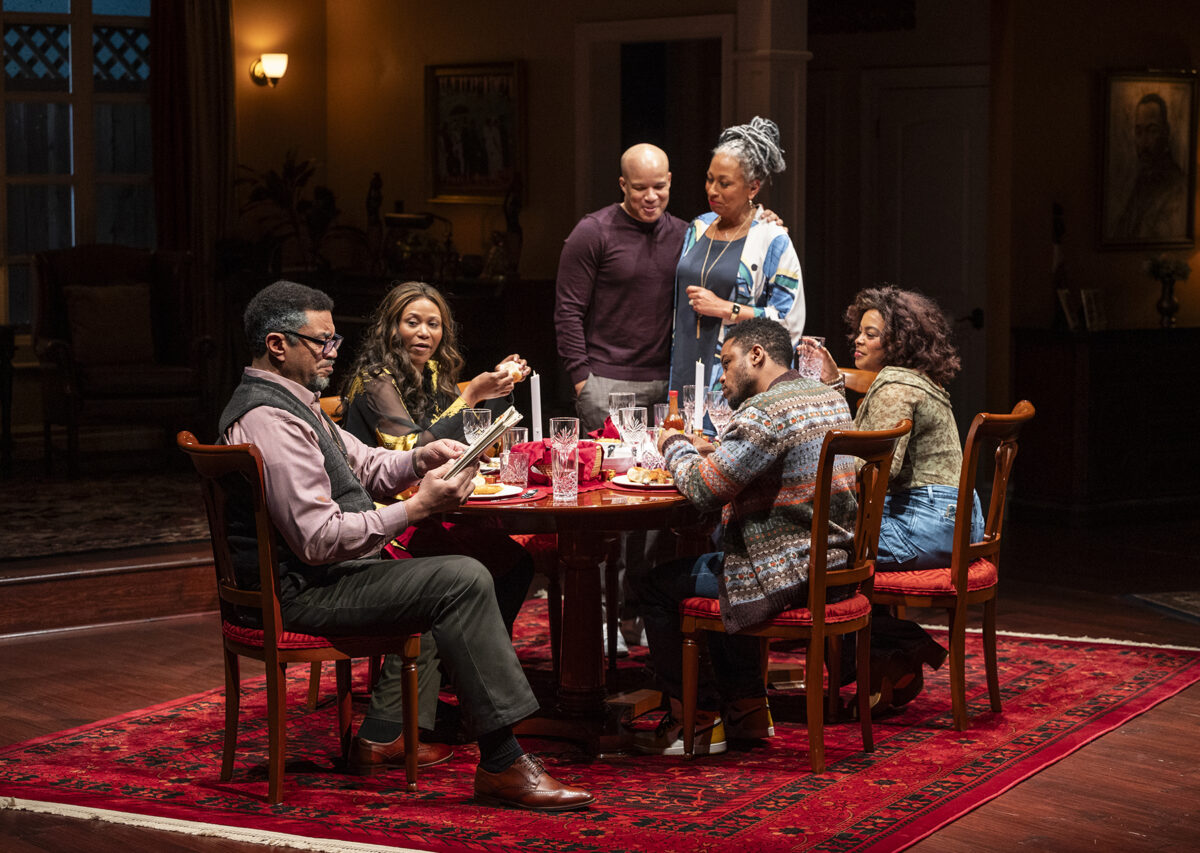In the heart of the Steppenwolf Theater, a packed house filled with soulful laughter at a recent showing of “Purpose,” which is as much a play as it is a journey that challenges our sense of being in a fast-evolving world.
Penned by esteemed playwright and Pulitzer Prize finalist Branden Jacobs-Jenkins and brought to life under the direction of renowned actress and Tony Award winner Phylicia Rashad, “Purpose” delves into the lives of the influential Jasper family. The play is somewhat of a roman à clef about civil rights activist and politician Jesse Jackson. Descendants of pillars in Black American politics within the civil rights movement, the Jaspers embody Black excellence, esteem, and class. But when the eldest son returns home to Chicago from prison and the youngest arrives with an uninvited guest, the family’s façade of perfection crumbles, revealing a web of lies that clashes with their deeply held beliefs of faith and political influence.
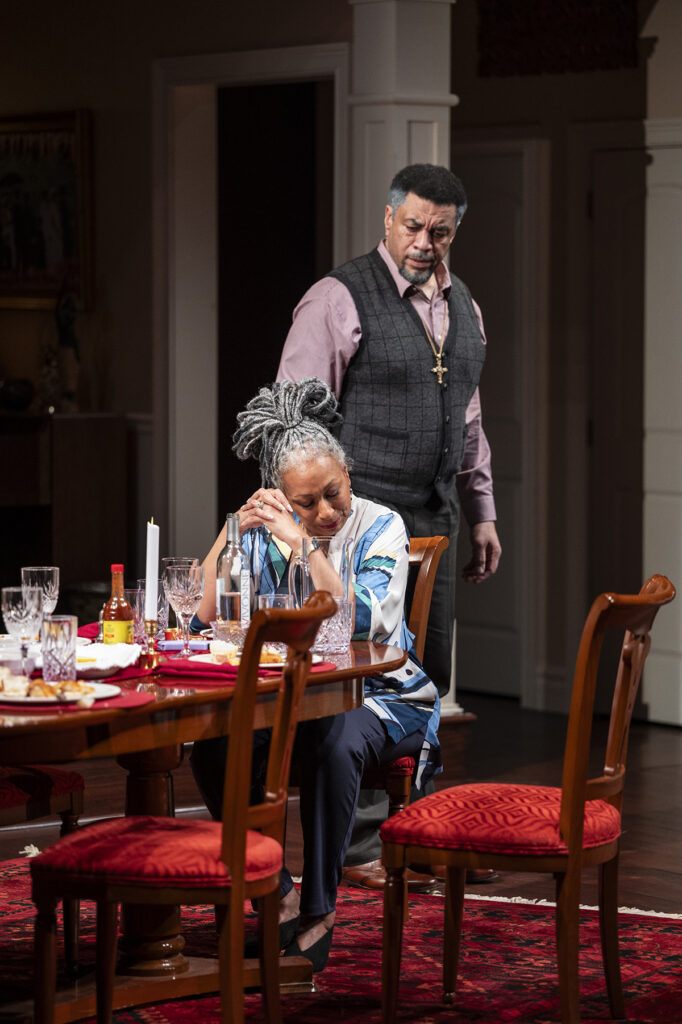
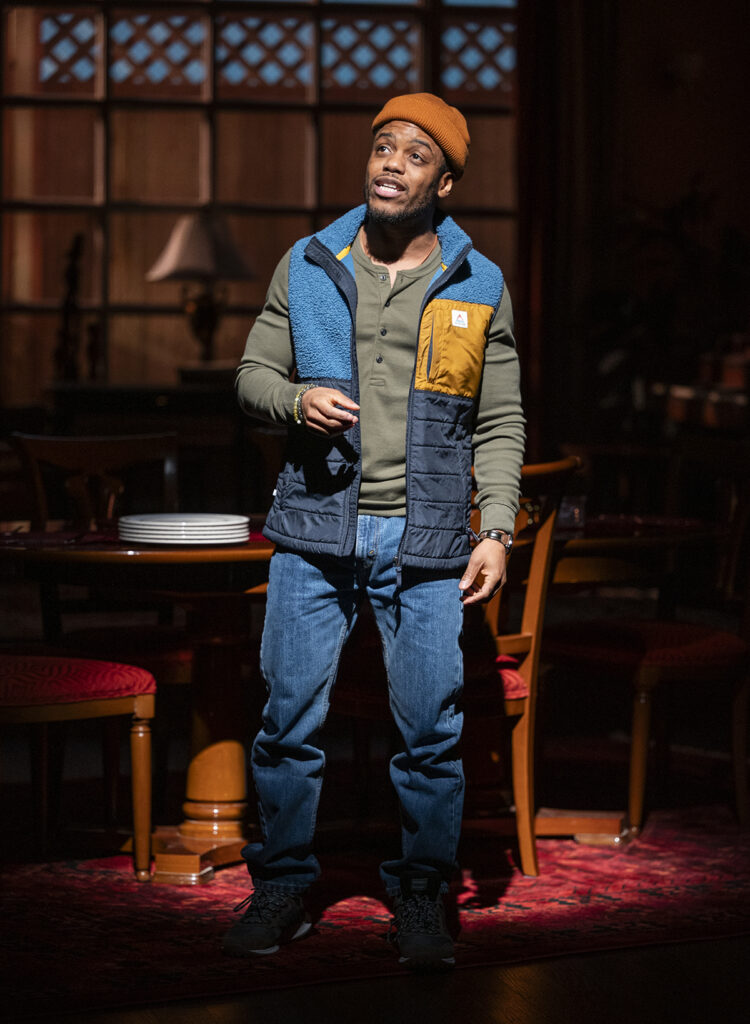
At its core, the play isn’t just about the Jaspers, but about the universal struggle with secrets, identity, and stifled potential. Rashad’s directorial vision explores our will to live and find purpose, particularly through the lens of family. In a world teeming with intercultural complexities, the story resonates as a timely reflection of contemporary family dynamics amid rapid societal changes.
As the play unfolds, the audience is often swept into timely laughter, similar to a live sitcom, as they find familiarity in the universal beats of cross-generational interactions. Through poignant moments and everyday experiences, the Jaspers navigate reflections, revelations, and critiques about society, offering generational perspectives on decades-long economic and social issues plaguing U.S. families.
Over dinner and living room discussions, the different generations grapple with how societal belief systems have evolved from those under which they were individually raised. Mental health and disabilities, the prison industrial complex, the spectrum of sexuality, political corruption and polarization, social isolation, and the digital divide all emerge as central themes woven into the fabric of the play.
As the Jaspers navigate these conversations and confrontations, viewers are challenged to reconsider their own beliefs and attitudes toward these complex issues. The intergenerational dynamics within the family provide a platform for exploring how societal norms and values evolve over time, highlighting the importance of dialogue, understanding, and empathy in addressing the challenges facing contemporary society. The intricate details of the set further deepen the thematic richness of the narrative.
Simple yet telling stage design merges modern minimalism with quaint, traditional warmth, subtly hinting at the quiet symbols of wealth woven into each character’s wardrobe. Designer luggage, Polo Ralph Lauren pajamas, collectible African art, and sparkling diamond wedding rings remind the audience that the Jaspers have means. The brown and coral hues within the interior design embody a sense of sophistication and elegance. This is also a celebration of cultural richness, as there was a shift in the late 90s and early 2000s of affluent Black households utilizing such colors to express class and unity. But as the saying goes, the bigger the house, the larger the problems—a truth echoed in the Jaspers’ struggles with the trappings of Black excellence and ambition.
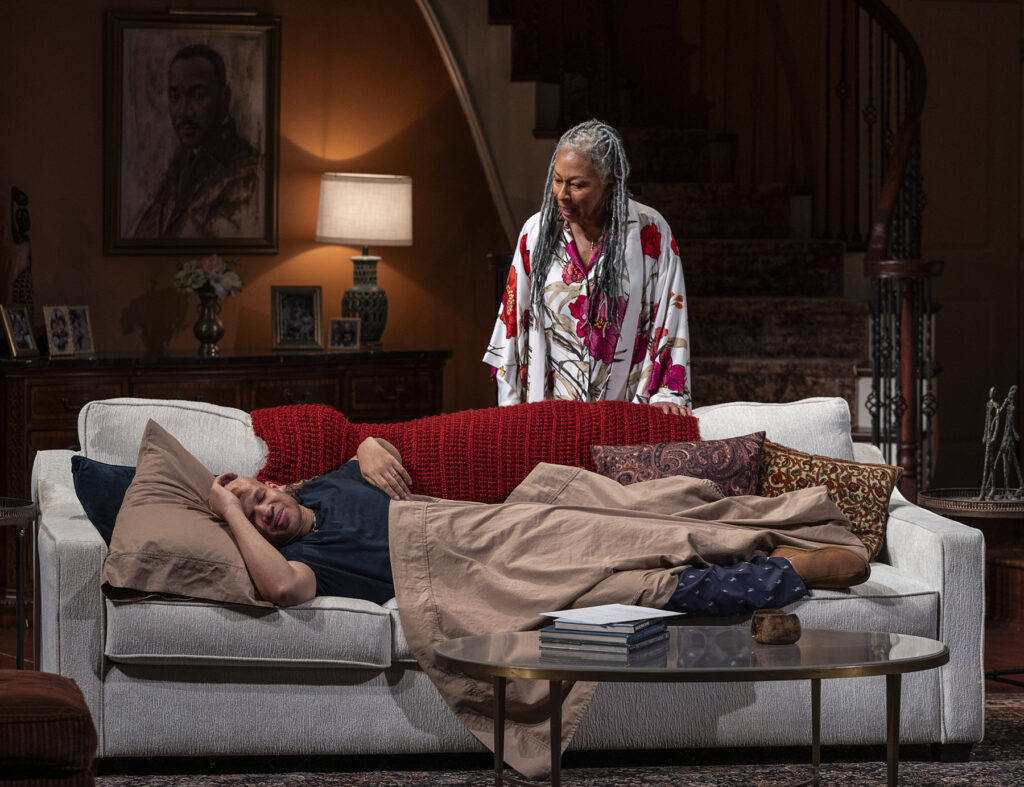
The strength of the cast lies in their ability to breathe life into each character, showcasing a spectrum of personality and emotional traits that resonate with audiences. Solomon “Sonny” Jasper, portrayed by Harry Lennix and Cedric Young, embodies wisdom and boldness, commanding attention with his assertive demeanor and thought-provoking delivery. As the patriarch of the Jasper family, Sonny’s pride in his lineage and contributions to social justice is evident yet he questions the inherited values and morality he passed down to his own family.
Tamara Tunie’s portrayal of Claudine, the family matriarch, brings depth to a character who exudes confidence and grace as an accomplished lawyer-turned-Renaissance-woman. Claudine’s unconditional love for her children is palpable, even in the face of their flaws and missteps. Yet, when confronted with harsh truths about the family’s foundation, Claudine’s resilience is tested, challenging her unwavering defense of the Jasper legacy.
In the role of Nazareth “Naz” Jasper, Jon Michael Hill captures the essence of the silent anchor within the family. Naz’s divergence from the religious and political roots of his upbringing sets him apart, yet his self-assuredness and quiet demeanor hold a profound significance. As tensions rise within the household and in the presence of his uninvited guest, Aziza (played by Ayanna Bria Bakari), Naz’s journey of self-discovery and purpose unfolds, offering new insights and breakthroughs for himself and the Jasper family. Through nuanced performances and compelling character dynamics, the cast seamlessly intertwines individual journeys with the collective narrative, underscoring the depth of each character’s presence and impact on stage.
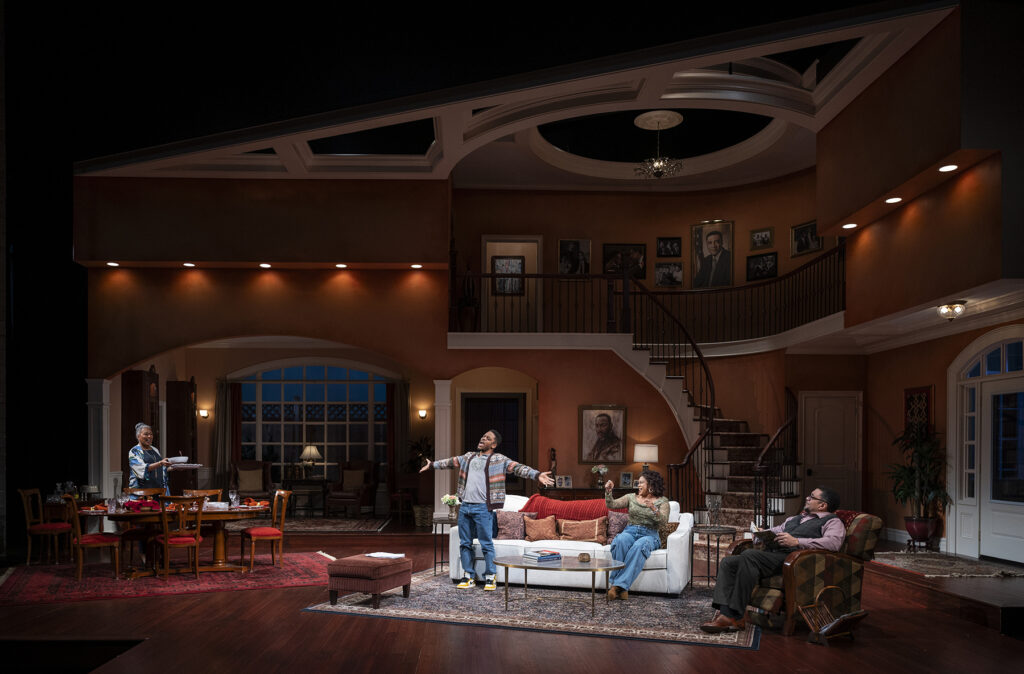
Ultimately, “Purpose” transcends mere storytelling. Themes delve into everything from spirituality and politics to social movements, and the intricacies of family dynamics in a post-pandemic world. It’s a testament to the enduring power of familial bonds and the human spirit’s resilience in the face of adversity—a message that reverberates long after the curtains fall.
Kristian is a writer and independent filmmaker who’s passionate about creating authentic stories and analyzing various art forms.

